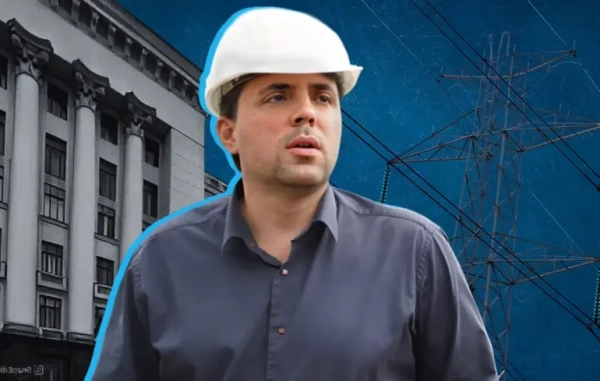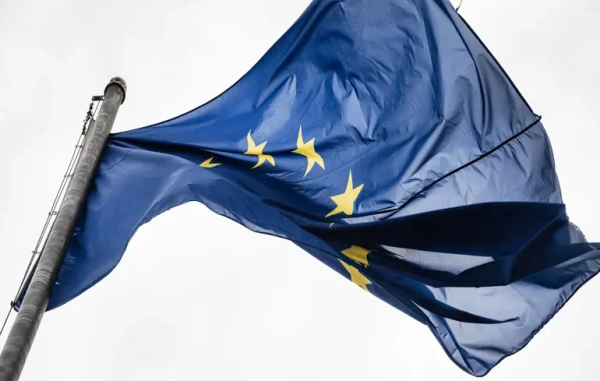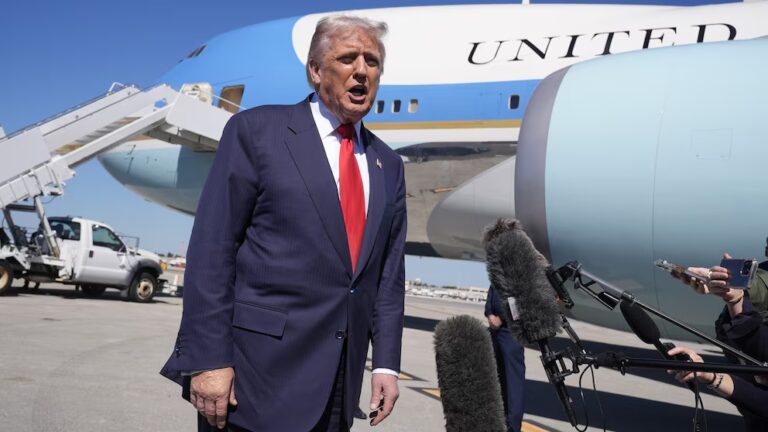
© Collage ZN.UA

Yulia Samayeva
Ex-chief of NPC Ukrenergo, Volodymyr Kudrytsky, who is accused of misappropriating funds from the state enterprise, was released from custody on October 30 against a deposit of UAH 13.7 million. Difficult days are looming for Mr. Kudrytsky. Sadly, he isn’t alone in this.
In this situation, Bankova is not only evening personal scores with a certain individual but is also conspicuously claiming dominion over the entire territory of Ukraine, ensuring that no one dares to introduce superior methodologies, foreign investments, and cutting-edge innovations.
The version presented by the State Bureau of Investigation (SBI) is as follows: back in 2018, when he was serving as Ukrenergo’s investment director, Kudrytsky allegedly conspired with a representative from a private firm during tenders for the renovation of the external perimeter of the Southern and Western energy systems’ substations. He is accused of inking two agreements with this firm, totaling over UAH 68 million, and disbursing advance payments of UAH 13.7 million, which he supposedly embezzled without completing the work. This purportedly resulted in losses for the state, and Kudrytsky, as the signatory to these agreements, faces a possible 12-year prison sentence with asset forfeiture.
The SBI delicately avoids mentioning anyone besides Kudrytsky, but the discussion revolves around contracts awarded to LLC “Vizyn Rich,” owned by the controversial Lviv businessman Igor Hrynkevich , which secured the tenders for constructing the aforementioned fence on the Prozorro platform.
Registry of Overlooked Judicial Rulings
Much has surfaced since 2018, and it is unrealistic to consider the SBI as the sole source of insight into this matter. The register of court verdicts can reveal even more information about it.
Take, for example, a “larger” undertaking involving an advance payment of UAH 8.8 million, also referenced as case No. 906/283/21 . The documents indicate that following the initial accord, a supplementary agreement was reached, establishing revised implementation dates: project development and approval by April 30, 2019, and work execution by December 20, 2019. The contractor failed to meet these deadlines, and on January 13, 2020, Ukrenergo annulled the contract. From that day forward, Ukrenergo acquired the prerogative to demand the contractor to reimburse the advance payment, along with interest at a rate of 14% per annum for each day the advance was utilized. The contractor failed to return any funds, leading Ukrenergo to seek legal recourse and obtain a favorable decision .
Admittedly, the court, acknowledging the existence of a supplementary agreement, reassessed the penalties and fines, diminishing them by nearly a million hryvnias. Nevertheless, the outcome wasn’t entirely unfavorable, considering that the court decreed that Vizin Rich LLC must remit 17.9 million hryvnias to Ukrenergo for the advance payment of 8.8 million .
However, one might wonder why Ukrenergo only turned to the courts in March 2021.
The explanation is straightforward – Ukrenergo dedicated a year to securing bank guarantees for the advances disbursed to Vizin Rich.
Here, the court registry also provides insights. In case No. 904/1579/20, Ukrenergo is pursuing the recovery of the aforementioned advance payment of UAH 8.8 million from the guarantor, Concord Bank, which isn’t among the top-tier Ukrainian banks.
According to the stipulations, the guarantor was obligated to furnish the funds in lieu of Vizin Rich upon receiving the initial written declaration regarding the contractor’s failure to return the advance. Ukrenergo dispatched such a demand to the bank on January 22, 2020 – the day subsequent to the deadline for Vizin Rich to reimburse the advance . Consequently, if you encounter reports asserting that Ukrenergo applied for a bank guarantee belatedly, rest assured that you are being misled.
The bank demurred from making timely payment, asserting that Ukrenergo “had not exerted sufficient efforts to compel the contractor to pay.” The court remained unconvinced, instructing the bank to disburse both UAH 8.8 million in guarantees and UAH 19 thousand in interest for the delayed payment to Ukrenergo. The second, “smaller,” contract underwent a roughly analogous scenario. Court orders exist for the mandatory collection, in favor of Ukrenergo, of both the larger advance and the smaller one .
All 13.7 million UAH were restituted to the state enterprise.
The sole perplexing aspect of this narrative is why Concord Bank, which never achieved prominence and was ultimately liquidated by the NBU, was chosen as the guarantor in the first place.
Whatever the case, the determination to select a guarantor bank was certainly not an individual choice made by Kudrytskyi .
If Ukrenergo prevailed in all court proceedings pertaining to this matter and amassed even more funds for the state than it had advanced to the Lviv entrepreneurs, then what is the basis for the State Revenue Service’s accusations?
Prosecutors allege that, upon receiving guarantees from the bank, Kudrytsky and Hrynkevich illicitly appropriated and split the funds. However, no evidence substantiating this claim has been presented, and they are in no hurry to disclose any.
Firstly , the aforementioned court cases clearly indicate that the funds were slated to be reimbursed to Ukrenergo’s accounts, making it exceedingly challenging to “extract and allocate” them among two individuals. The fact that Ukrenergo persisted in pursuing Vizin Rich in court even after receiving the bank guarantee does not imply that the guarantee money disappeared. The company simply pursued penalties, fines, and justice.
Secondly , the proof of Kudrytsky’s “collusion” with Hrynkevich supposedly lies in “Vizin Rich’s” triumph in the tender, despite their bid not being the lowest. However, scrutinizing the documents pertaining to that procurement reveals that two “cheaper” offers were rejected because one applicant lacked sufficient personnel, and the other lacked adequate experience (the decisions are well-reasoned and, incidentally, were not signed by Kudrytsky).
However, all these and other arguments are improbable to sway the future trajectory of events. A seven-year-old case lacking victims or actual damages appears and behaves like a thinly veiled pretext for a “smear campaign.”
Megawatts of Resentment
It would be mistaken to believe that the flawed rationale is solely attributable to the implementers.
It is erroneous to assume that Bankova is genuinely perturbed by the prospect of potential harm to the state.
Avoid succumbing to conspiracy theories suggesting that the office seeks to saddle the former head of Ukrenergo with responsibility for all the difficulties of the approaching, immensely challenging heating season.
All of these interpretations overshoot the mark, whereas the reality is so mundane that it induces revulsion.
Bankova harbored animosity towards Kudrytsky from the outset. Empowered by corporate governance, he disregarded the Ministry of Energy and the “Galushchenko group” . He disrupted Energoatom’s business involving bags of prices that were four times lower at Ukrenergo. He erected anti-drone defenses at practically every substation, funded by partners, which contrasted unfavorably with the “achievements” of the remainder of the energy sector. Crucially, Ukrenergo garnered three times more international funding than the relevant ministry and resolutely barred “Galushchenko’s associates” from gaining access to its coffers. Consequently, Kudrytsky was dismissed amidst scandal, jubilation, and the hope that he would never resurface…
It comes as no surprise that Bankova was deeply agitated by Kudrytsky’s subsequent unprecedented activity, particularly in conjunction with Tomasz Fiala, another individual deemed disagreeable by the office.
Fiala himself represents a palpable source of irritation for Bankova. For Zelensky and Yermak, who have struggled to respond adequately even to minimal criticism, Fiala’s media empire, especially Ukrainska Pravda, is a thorn in their side. To such an extent that the notion of imposing sanctions on Fiala has frequently crossed the minds of executives within the office. One might recall the vigorous campaign, spanning from Telegram channels to telethons, disseminating information that Arricano Real Estate, a development company in which Fiala held a 12.5% stake, had maintained its operations in Crimea. This past summer, Arricano indeed landed on Ukrainian sanctions lists, albeit after Tomasz Fiala’s Dragon Capital had already divested from the company. They were too late. Most importantly, while fixating on these trivial matters, they overlooked the emergence of something far more significant.
The Power One project , conceived by Fiala’s Dragon Capital and Kudrytsky’s Negen company, aims to develop distributed generation , which the Ukrainian energy system has urgently required in recent years. Fiala has already channeled $30 million into the project. His Dragon Capital retains full ownership of Power One. Kudrytsky, through Negen, contributes organizational expertise, management skills, and, to some extent, “market acumen.” There is no room for delusion here, and the ex-CEO of Ukrenergo is no stranger to the energy sector, as is his co-owner in Negen, Andriy Nemirovsky, a former member of the Ukrenergo board. Thus, “sensational” headlines like “The company of the ex-head of Ukrenergo won the competition in Ukrenergo” were inevitable. However, the energy sector is so highly specialized that virtually everyone here is someone’s former colleague. It would be more astonishing if Kudrytsky had ventured into cattle farming after his dismissal. Our energy market is meticulously regulated, with a plethora of regulations, standards, and qualification prerequisites that even a former high-ranking official would find challenging to circumvent.
Moreover, Power One is not a mere preliminary venture. By the culmination of this year, the project aimed to establish approximately 20 MW of gas-fired generation and 40 MW of energy storage systems. The anticipated profitability of the project is projected at 30%, with a payback period of three years. The inaugural station was slated to commence operations this fall, allocating roughly half of the aforementioned $30 million for the acquisition of land and equipment.
In early April, the company successfully cleared Ukrenergo’s qualification screening for the construction of new generating capacities – two facilities of 9.2 MW each in Transcarpathia. By the close of April, it had secured consent from the Mukachevo urban territorial community (document). Incidentally, Andriy, the son of Viktor Baloga, presides over this community. In June, it obtained a trader’s license from the National Commission for State Regulation in the Spheres of Energy and Utilities (NKREKP). In July, RSE, a Czech enterprise, supplied gas-piston installations predicated on MWM engines with a capacity of 1–4.5 MW, culminating in a total capacity of 20 MW for the project’s initial phase.
Simultaneously, efforts were underway to launch an energy and infrastructure investment fund in conjunction with the international investor, Amber Infrastructure Group, and with the engagement of funds from the European Investment Bank and the European Bank for Reconstruction and Development, which assented to invest up to 110 million euros in the initiative.
Remarkable pace! A bit more, and we might actually believe that the government intends to augment our distributed generation and attract investors to the energy sector… The state desperately needs these investments, but the government places a higher premium on ensuring that the office’s adversaries encounter impediments. This holds greater significance than any amount of megawatts and hundreds of millions.
Individuals who have failed to forge a consensus with the office and who demonstrate disapproval of their modi operandi cannot freely operate and develop, negotiate with partners, generate revenue, and anticipate any form of remuneration. Without Bankova’s sanction, external to Bankova’s sphere of influence, and, worse still, to the detriment of Bankova.
Now, let the EBRD explicate why one of their associates is facing a 12-year sentence with asset forfeiture.
Of course, Kudrytsky and Fiala will offer their explanations – the dubious practices have long ceased to surprise anyone.
However, the message being conveyed is unequivocal – from the moment of the initial searches at Kudrytsky’s residence to the present day, “fresh, scandalous details” regarding Kudrytsky’s supposed transgressions have consistently surfaced in the media, invariably originating from sources not included in the “white list,” and invariably lacking references or supporting evidence.
It appears that someone is intent on impressing upon everyone that “Texas” cannot only be plundered by “Texans” but also constructed by others.
Formidable figures within the state are gearing up for reconstruction. The prospect is unsettling.






